#television licence inspector
Text
The Guardians: Part 7 - This is Quarmby
In this episode the resistance group Quarmby once again ramp up their effort to sabotage the status quo by hijacking broadcasts to criticise the regime and set up a protest to get everyone to turn up late for work by five minutes. It feels curiously contemporary because of course these are exactly hot subjects in terms of what we would now call misinformation and disinformation on social media and in news media. This is particularly of relevance because some of the broadcasts talk about rigged elections. The episode shows the problems of information to extend from the top to the bottom of society, including things being kept from the Prime Minister.
The political subject for this episode is therefore about intelligence, misinformation, propaganda and the control of 'the masses'. The techniques used to identify the location of the broadcasts are very much in line with the preoccupation with technology seen in so much contemporary television, and you can see something similar in many a TV show of the time (I think there are episodes of The Professionals and possibly The Sweeney off hand, which reflect very much the same subject).
Brilliantly, the show makes a connection with the TV licence detector vans used at the time to detect households watching TV without a licence so that a fine could be imposed. In the sixties and seventies there were some very Big Brother public service announcements used to indicate that they could tell when you were changing your socks and would be straight on to you. What the show does brilliantly is turn the existing repute of these vans round to have the PM say that far from merely collecting data on TV viewing, they were actually used to collect other intelligence on the population, brilliantly building on a real thing. In fact of course there have also been ongoing rumours that these vans were actually completely empty and were merely used for the fear and to transport the inspectors who visited homes without licenses who were the actual means of finding out who was watching TV without a licence. As far as I can tell the actual evidence is inconclusive and suggests that at various times and places some vans had technology to detect TV viewing and at others they were used to transport the inspectors.
I'm a bit ambivalent about the five-minutes-late protest because it suggests it was merely to demonstrate that Quarmby could get the populace to do things: I really don't think getting the entire population to turn up five minutes late would bring the country to its knees.
In another slight change of consistency, this episode misses out all the human interest and is much more purely political in its discussion.
The chief problem with this episode is that while the Quarmby group are intended to be resisting an illegitimate, oppressive regime, the broadcasts are rather reminiscent of Lord Haw-Haw's wartime misinformation broadcasts, which makes it quite confusing. This can tend to increase the viewer's sympathy for the unelected ruling regime! Similarly the Guardians' black uniforms are also quite reminiscent of Lord Haw-Haw as well as Oswald Mosley, so it can get a bit confusing.
Otherwise my other main criticism is one I have made before, that it simply isn't possible to fill an hour long episode with action and so this one comes across as a bit talky.
Have some contemporary TV licence films to set the fearsome tone:
youtube
youtube
This blog is mirrored at
culttvblog.tumblr.com/archive (from September 2023) and culttvblog.substack.com (from January 2023 and where you can subscribe by email)
Archives from 2013 to September 2023 may be found at culttvblog.blogspot.com and there is an index to the tags used on the Tumblr version at https://www.tumblr.com/culttvblog/729194158177370112/this-blog
0 notes
Text
Get The Service of Correct Home Improvement Contractor
Whenever you opt to begin upgrading your house or one of your investment properties, you must be capable of selecting the best home maintenance contractor for the project. Taking the effort to choose a competent and dependable Plumbing contractors in London might save you a lot of time and stress, not to mention money.
You ought to be informed that this market is very competitive, which leads to a large number of subpar contractors who are just interested in making a quick buck. However, there are many conscientious contractors that have a strong work ethic. Following are a few things to consider while looking for trustworthy Electrical contractors in London:

Make certain of your aim and understand what you desire - Prior to even contemplate undertaking home renovations, be certain that you know precisely what you want to accomplish. Have precise drawings or blueprints on hand to show the contractor you are evaluating in order to give him a clear image of what you want done.
Learn what to inquire about - Having pre-determined questions to ask the contractor about the project at hand can give you an insight of their work ethic. Questions about cost implications, time frames, and cost-cutting proposals may considerably assist you in selecting the right contractor.
Do not hurry your pick - Many individuals make the error of going with the first or least expensive Painting contractors in London they come across; avoid this mistake. Take your time establishing the reputation and dependability of the contractor you choose, and ensure that you each have a clear idea of what you want to accomplish and that all essential agreements are in place.
Many individuals underestimate the significance of hiring the right Tile fixing contractors in London for the task. By avoiding the duty of being entirely thorough in your selection, you will be setting yourself up for a couple of unpleasant surprises.
Conduct more research: The further you understand enough about project you wish to start, the more you'll be capable of steering it. Knowing what's going on will also make it more difficult for your Gas installation contractors in London to pad the invoice with unneeded improvements or exorbitant labour prices. Of course, none of them would take it on.
Do not even trust the advertising: Keep in mind that contractors fund for all of those glitzy commercials and television spots. In order to determine their true worth, request recommendations as well as a portfolio.
Please submit your papers: The majority of states have legislation that require contractors to be licenced and bonded. Inspect your contractor's insurance policy and demand to see their qualifications. Most of the states require contractors to have worker's compensation, damage to property, and private liability coverage.
Pose the following questions: Whenever it comes to contractors, word of mouth is typically the greatest source of information. Ask friends that have already had work done for recommendations, as well as other specialists such as your plumber or gardener. Consult with local construction inspectors and other government authorities engaged in construction as well.
0 notes
Photo
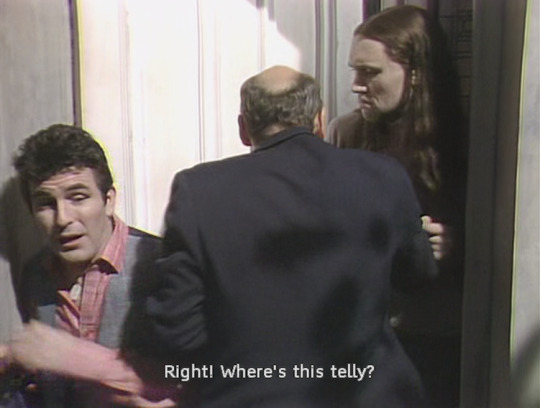
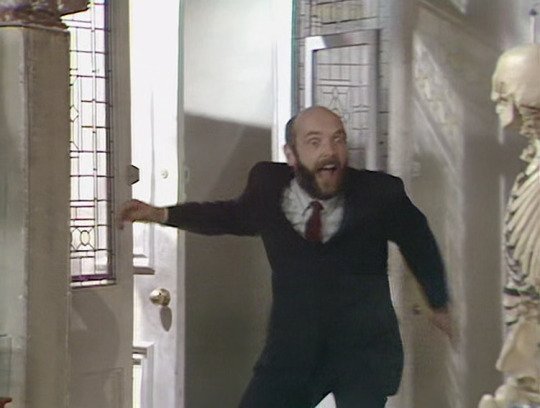
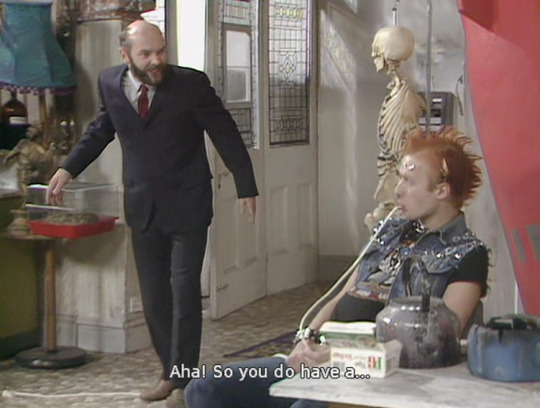
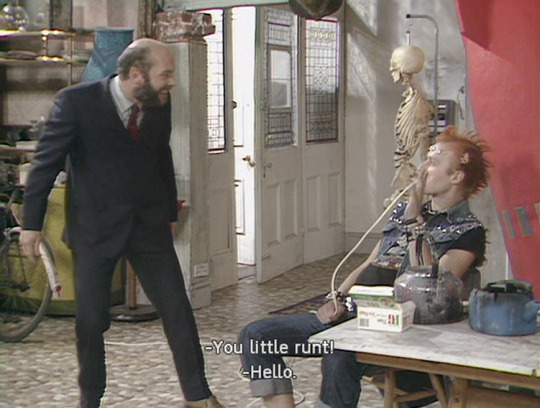
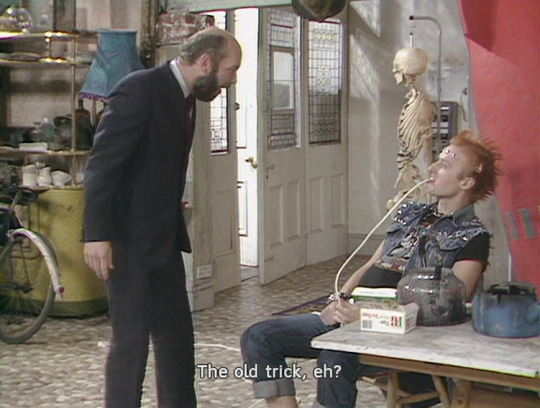
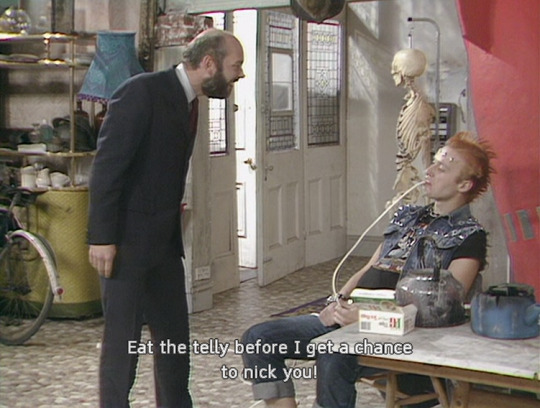
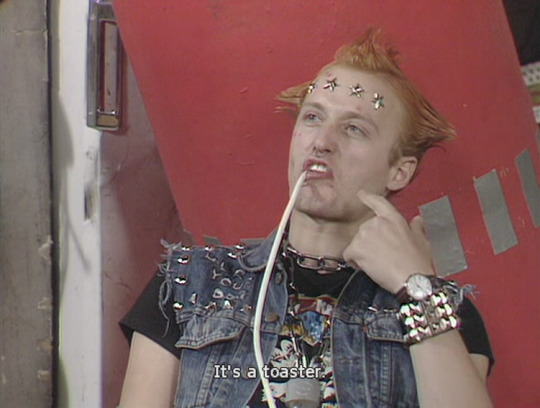
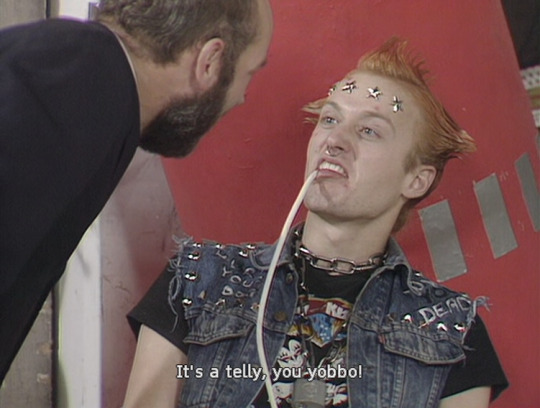
The Young Ones - S1E4- "Bomb"
#the young ones#bomb#television licence inspector#Right Bleeding Bastard#Mike the Cool Person#Neil Pye#Vyvyan Basterd#Rick Pratt
24 notes
·
View notes
Text
Things you didn’t know about Blenheim Palace, from helping with royal adulterers to its unique role in equal rights

Blenheim Palace Credit: Blenheim Palace
Blenheim Palace, the Duke and Duchess of Marlborough’s Oxfordshire home, is one of the most famous country houses on the planet — not to mention the birthplace of Winston Churchill.


Why Blenheim was named ‘Blenheim’ — and why it was built in the first place
In 1700 Louis XIV’s huge ambitions and his large, powerful army had ensured France had not lost in battle for 50 years. But in 1704 John Churchill, Earl of Marlborough put a stop to this. Against all odds his army conquered the French outside a town in Bavaria called Blenheim. Queen Anne wanted to honour the Earl and commissioned prestigious architects John Vanbrugh and Nicholas Hawksmoor to design a magnificent baroque palace in the grounds of a royal hunting park, as a monument to the Battle of Blenheim. The Palace replaced the Royal Palace of Woodstock, a Tudor palace 200 metres away on the other side of the river.


Blenheim’s unique role in equal rights for women
The first Duke of Marlborough had no surviving sons which led parliament to introduce legislation enabling the Dukedom and estate to be passed to a female heir or through the female line. Thus the second holder of Blenheim Palace was in fact a woman. A younger daughter, Lady Anne Churchill, married Charles Spencer, 3rd Earl of Sunderland (c. 1674-1722), and from this marriage descended the modern Dukes of Marlborough.
Originally they bore the surname Spencer but George Spencer, the 5th Duke of Marlborough, obtained a Royal Licence to assume and bear the additional surname and arms of his famous ancestor, the 1st Duke of Marlborough, and thus became George Spencer-Churchill.

Picture Blenheim Palace

Picture Blenheim Palace
The Dukedom of Marlborough is the only Dukedom in the United Kingdom that can still pass in the female line. The succession for the Dukedom is as follows:
The heirs-male of the 1st Duke’s body lawfully begotten;
His oldest daughter and the heirs-male of her body lawfully begotten;
His second and other daughters, in seniority, and the heirs-male of their bodies lawfully begotten;
His oldest daughter’s oldest daughter and the heirs male of her body lawfully begotten;
All other daughters of his daughters and the heirs male of their bodies;
And other descendants into the future in like fashion, with the intent that the Marlborough title never become extinct.

Blenheim Palace’s Grand Bridge. ©Blenheim Palace
How Blenheim helped Henry II enjoy an extra-marital affair

Long before the Palace was built Henry II used to keep his mistress Rosamund Clifford in a cottage in the grounds of Blenheim Palace. Legend has it that a labyrinth led to the cottage, ensuring only the King himself could reach it — until his wife, the formidable Eleanor of Aquitaine grew suspicious.
A thread from a tapestry Rosamund Clifford was weaving caught on the King’s spur as he left the cottage, leaving a clear trail for his wife, direct to the front door. Rosamund was offered death by the sword or by poison but while she was being taken to London she escaped and took refuge in a convent nunnery at Godstow near Oxford in 1176.

picture Blenheim Palace
The stones from this convent were used to build many of the buildings in the area, including the Trout Inn, featured in the Inspector Morse television series.

Picture Blenheim Palace
Blenheim’s special status as a World Heritage Site
In 1987 the United Nations selected Blenheim Palace to join the Great Wall of China and the Pyramids as a World Heritage Site. As a monument to the Battle of Blenheim, an exquisite example of English Baroque and of Capability Brown’s landscaping, the Palace was considered by selectors to have been of prime importance to human development. The Palace is the only historic house in Britain to be bestowed with this honour.

picture Blenheim Palace
Blenheim’s marriage of convenience

picture Blenheim Palace
Blenheim Palace was in a dire financial situation when the 9th Duke of Marlborough inherited the title in the 1890s. Money was urgently needed so the Duke set off for America in search of a rich bride. Seventeen-year-old Consuelo Vanderbilt fitted the bill perfectly.
Her father was the Bill Gates of Victorian America, and in marrying her, Blenheim Palace became £3/4 billion richer. After 10 years, the marriage came to an end; both parties happily remarried and Blenheim Palace remained financially buoyant.



pictures Blenheim Palace

Blenheim Palace’s Grand Bridge
source https://www.countrylife.co.uk/architecture/five-things-you-didnt-know-about-blenheim-42422 pictures credit Blenheim Palace
Wonderful! Thank you so much!😄❤️❤️❤️❤️❤️
67 notes
·
View notes
Text
1- Time Crime
(by Christopher Jones)
The year was 2040, nine years after the bust. They had called it the new El Dorado during the boom, but what could they call it now? Greymouth: the open orifice of a corpse humming to the tune of its own death rattle. It was a city trying to hold onto, yet somehow forget, the glory of years gone by; to settle at last to humble death, while the last of its flesh was consumed by collectors, as debtors made a hasty exit, and all those who had come to ride the wave were gone, leaving an overweight economy and too many high-rise buildings to sustain its rotting core.
I arrived during the tumult of a spring storm. There was quite some turbulence but the air hostesses didn’t seem very worried, and that was good enough for me. The one on my aisle was very made up, with tight blonde hair, a sweet chubby face and her skirt came down to just below her knees. They say that when it rains here it really rains, but they also say you get used to it. The pilot had to circle three times waiting for a window of visibility before finally bringing the DC-20 down to land.
I met my rental car agents outside the terminal building. I had ordered a manual four-wheel drive, apparently the only one in town. The mainstream companies which crowded the interior dealt only in the new generation of foolproof automatics, and besides there was a limited supply of large vehicles without prior notice. I knew what I would need, so I looked around on the internet until I hooked up with these guys, Smack Car Rentals, and at the last minute arranged for them to meet me at the airport. Before going outside into the din of the weather I let my local contact, Police Inspector Jack Martin, know that I had arrived. He gave me the address of where to meet him.
The dark day was just coming onto dusk, and I waited there for a moment sheltered from the rain by the large overhead canopy until a small silver Suzuki Swift drove up. A tall, handsome man of about 30 got out, quite a flashy type with black hair and dark brown eyes. He introduced himself as Paul Bartley, “We spoke on the phone, Mr Jones. Sorry about the delay,” he said, putting my cases into the back and opening the passenger’s door for me to enter, “Your Range Rover is at the office. I need to check you in.” It was here that I felt the first inexplicable glitch, like a shudder through my reality that showed I wasn’t there by accident. This was no false alarm.
I got in and he said as the car drove towards the CBD, “I’d apologise for the weather, Mr Jones, but it’s beyond the powers of my control. This is the West Coast, after all.”
“Yes,” I nodded, “It’s a narrow strip of land between the coast and the Southern Alps. When the prevailing westerly comes off the ocean loaded with water, it hits the mountains and dumps its load, leaving the east in drought while the west has more rain than it can handle.” He laughed as though I had told some kind of joke, so I added, “Call me Chris.”
The office on Mackay Street was one of several on the second floor of an old two storey building standing between taller, shakier buildings built during the 2020s. It was accessed by a narrow flight of steps which took us up to a shabby lobby with several doors to various offices. The sign above the door we entered read, “PPS Bartley Real Estate, Smack Car Rentals and P. Bartley Detective Agency”. He indicated for me to stand at a counter which was obviously used for the car rental side of the business, “Would you like tea or coffee?” he offered, and I shook my head.
Looking at the real estate display board, I noticed one property stand out from the others. It had a note saying, “Serious Viewers Only. No Tourists!” which piqued my curiosity. I then recognised the red shed on the photo from my research files as being the location of one of the Blondino murders. The thought of that recognition gave me a second inexplicable glitch; a feeling like déjà vu. I asked, “How is the real estate business doing these days?”
“It’s a good time to buy,” he said, “People shy away from a market in a slump, but think about it. You wouldn’t buy your groceries like that, would you? You wouldn’t wait till prices rocketed before you rushed down to the supermarket. No, you’d grab what you could while everything’s on sale. So why treat real estate any different? There are plenty of good bargains to be had around here.”
“What about this one?” I asked.
“That’s the Thompson property; a real bargain. If you’re interested, come back tomorrow when the office is open and we’ll talk business. You honestly could not go wrong.”
He entered my details into the computer, such as driver’s licence and credit card numbers, and printed off some papers for me to sign just in time for a second, younger man to enter. “It’s all fuelled and ready to go. I’ve put your cases on the back seat,” he said, he looked so similar to Paul Bartley that he was obviously his younger brother. He wasn’t quite so flashy and he wore a wedding band. He handed me the key attached to a bright orange key-ring with the Smack logo on it and said, “Diesel only. It’s just outside.” So I looked nonchalantly at the window as the rain came crashing down even harder, and bade them farewell.
I set the navigator to Power Road and pulled out from the curb. The good thing about cars of the era before everything became self-driving was that you felt like you were actually driving, and not simply a passenger in the driver’s seat. Even by 2040 the majority of cars practically drove themselves, but they weren’t fully driverless so it kind of made you feel like you were there but not there. Of course they already had the technology for self-driving but public suspicion had pushed for legislation that prevented its general implementation. Only vehicles that used special lanes such as freight and taxi were permitted to be driverless.
I took a left on Tainui Street, up past the traffic lights at the railway crossing, and turned right at the roundabout. After a few kilometres Tainui Street became High Street, and the rain eased off to a trickle. It was already full night. I passed the Oasis Hotel on my left, which I was booked into but would check in later, and proceeded for another 3.2 kilometres before turning left onto Power Road as the navigator directed. I drove up a steep hill to the house at number 32, where there was a police cordon in place. A modified white Camry and a standard patrol car with flashing lights awaited there for my arrival.
Reaching into my case for the gaga meter I noticed an umbrella on the back seat, so I decided to make use of it. There were four men, two in uniform and two detectives, standing beside the Camry. They took notice of me as I got out, clutching the meter, fumbling about with the umbrella which didn’t seem to want to open. It came up all of a sudden and almost sent me tripping over my own feet. The detectives walked over to greet me, putting out their hands and the older, obviously more senior of the two said, “I’m Police Inspector Jack Martin, this is Police Inspector David Walton. You must be Special Agent Christopher Jones.” I gave him and his partner the firm handshakes they wanted, showed them my badge, and Jack indicated towards the house, “We didn’t expect you would arrive tonight.”
He wore a thick coat and the water ran off his head but he acted as though it was nothing more than a slight inconvenience, which it probably was. He was a well built man of about 40 years, with a trimmed black moustache and a very friendly manner. David Walton was much thinner and younger, with brown hair and ginger moustache. Jack said, “Forensics were here this afternoon. So far, despite the blood being human, there’s no indication that the murder took place here. The bodies of the residents, Janine Hoffstad and her daughter Susan, were found in bush about 20 minutes out of town, and the blood isn’t theirs. They were strangled, and there’s every indication that they were murdered there. Personally, I wouldn’t have alerted you, even if it does look occult. It’s the computer that does it. It’s an algorithm. I hope you haven’t wasted your time. She’s the daughter of a crime boss.”
“It’s better to be safe than sorry,” I said, “And call me Chris,” but I could tell just by looking at the exterior of the yellow weatherboard house that I had already been there. It’s like the glitches. It’s what we call the ripple effect, and you develop a sense for it when you’ve been in the job for long enough. Think of it like a stone being dropped into a pool of water, and the ripples radiate out from the epicentre, repeating the trauma, which brings about the sensation of repetition. Some call it déjà vu, but for most people only the very strong pulses are felt, where they feel the ongoing effect of a great surge through the fabric of their lives.
Inside the house I switched on the meter and took a reading of the hallway with immediate indication of gaga. Jack Martin pointed to a door at the end of the hallway, “The interesting stuff is this way.” I nodded. “What does that thing do exactly?” he asked.
I said, “It measures gaga.” He nodded.
The lounge room at the end of the hallway came up with very strong readings. The light was dim, but at the turn of a dial Jack made it very bright. There was a pentagram painted from blood on the cream carpet of an otherwise fairly ordinary lounge. A black leather sofa and two matching lazy-boy armchairs were set facing a plasma television screen which took up most of the wall they faced. There was a strong scent of very sweet perfume like an overture to the senses with an undertone of musty dampness, and the rancid stench-like odour of rotting meat barely perceptible. At each point of the pentagram were two items, which mostly looked like they belonged to a woman, or a young girl, or both. “What exactly is gaga?” asked Jack as the meter hissed, almost off the scale.
At the closest point of the pentagram were a Barbie doll and a deck of cards with the golden pick logo of Inangahua Resort Casino at Reefton. The next point in a clockwise direction had a red badge with the picture of Daffy Duck on it, and a lady’s smart-watch with a blue strap. The third point had a postcard of a snowy mountain with three serrated peaks, that is, Mt Owen, and a brown felt hat with splotches of mud and a red flowery band. At the end of the fourth point was a CD album Sugar Sweet Candy Water by the Aloe Veras, and a small plastic daffodil of the type they sell to raise money for cancer research. At the final point was a Lenovo tablet with star and flower stickers on it, and a bottle of Le Frais perfume, with the lid not pressed on properly and so most of its contents had spilled onto the carpet.
I said, “To put it simply, gaga measures the difference between what is real and what is unreal. Think of it as the difference between matter and antimatter. The action of matter normally flows in nominal resistance to the reaction of antimatter, like a wave held in balance. When the wave becomes discordant, shadow waves appear, which is what we call a ripple effect, measured in units of gaga. You follow me?” He raised his eyebrows. “Okay, just think of it as telling me that something illegal has taken place here and the sooner that I deal with it the better it will be for everybody, so it’s good I got here when I did.”
“How bad is it? Should we be worried?”
“It’s bad, as bad as it gets. I need to bag these items.”
“What are they for? It is occult then?”
I nodded, and picked up the brown felt hat. There were strands of long blonde hair on the inside. Turning over the postcard there was, “Dear Mummy,” but nothing else written on it. I turned on the tablet and the screen saver was the same photo of Mt Owen as on the postcard. It asked for a pin and I tried a few basic combinations but they didn’t work.
I said, “Certain items become charged with gaga. We call them talismans. It’s occult in as much as ritualistic procedure was used to create the talismans, but occult is just a layman’s term for the process of manipulating the fabric of the space-time continuum, that is, the normal flow of matter and antimatter. Of course it’s highly illegal, but we have our methods. This crime took place here, but not the here as we see it, the here that exists somewhere else. All we see is the exhaust of an event and the only way to fix it is to find the source of the tear and stitch it up.”
“But should we be worried?”
I shrugged, “No, I think we’ve caught it in time. Good work.”
We came away and to my surprise the night had cleared. Everything looked washed, serene, and clean, with a starry sky and the near full moon glowing high above the ranges to the east. To the north the seven towers of Greymouth’s CBD were sparkling like they were something beautiful, to be proud of, but dread filled me because I knew they were more like the embers of a fire that had not quite been extinguished, and just the slightest wind would bring up the flame to consume it all like a dragon’s breath.
The city had been born of gold, and gold had destroyed the city, with a hundred and seventy years between to grow, to languish, and hope for better times. Their motto, “Our time will come again,” seemed like presentiment during the 2020s boom as many believed their time had finally arrived, but the problem with gold is that too much happens all at once, and when the gold is gone everything must collapse back into itself. Back in the 1860s it hadn’t mattered so much because there was only a limited amount that a town could grow with such means as steam ships and sailboats. But it was a different story during the 2020s, as the 2030s proved and the year 2040 was about to conclude; the devastation to be visited upon this city would be more than the sum of its components.
That was “Chapter One” of The Woman in the Brown Hat, a sci-fi fantasy detective novel by Marcus Pedersen.
Available on Amazon as an e-book and paper book: https://www.amazon.com/dp/B08RW59M7G
For more information see: https://www.facebook.com/ToroPopularFiction
For reviews see: https://www.goodreads.com/book/show/56531729-the-woman-in-the-brown-hat
#science fiction#science fantasy#fantasy#detective#sci fi#sci-fi#free#time travel#book#novel#occult#murder mystery#author#writers on tumblr#writer#writers#ebook#e-book#e book#paperback#The Woman in the Brown Hat
1 note
·
View note
Text
Reinventing Javert
An upcoming adaptation of Victor Hugo’s 19th century novel Les Misérables will be the most satisfying version yet, says star David Oyelowo, as he explains why taking the character of Javert beyond his portrayal as a one-one-dimensional villain was his most challenging role to date.
“If there’s something I’ve learned, it is you can never predict how anything you do is going to be received, as Victor Hugo will attest to,” David Oyelowo says with a smile. “But the thing I do know we’ve achieved is filling in a lot of the blanks that inevitably exist because you are trying to boil down a huge novel.”
Oyelowo is deconstructing his latest television role, which will see him tackle Javert, the police inspector and primary antagonist in Victor Hugo’s 19th century epic novel Les Misérables, in the forthcoming adaptation for UK public broadcaster the BBC and Masterpiece on PBS in the US.
The miniseries has been authored by period adaptation maven Andrew Davies (War & Peace, Pride & Prejudice) and sees Oyelowo face off against Dominic West’s protagonist Jean Valjean (pictured top alongside Oyelowo).
The subject of numerous recreations, the novel’s most recognisable reinventions are the long-running musical, which has now been a fixture on London’s West End for 33 years, and the 2012 Hollywood film helmed by The King’s Speech director Tom Hooper.
Oyelowo points out, however, that rather than treading the same ground, Davies’ six-hour series can go deeper into the book. “If it’s a film or a musical you’re distilling it down to, it’s too thin to be as satisfying as the book allows,” he says. “Six hours of television in the hands of Andrew Davies is a far more satisfying way to explore that story and understand these characters who intersect in ways that are genuinely universal – in terms of how we exist in the world now.
“What I love about the book is that at any given time I can identify with Javert, I can identify with Jean Valjean, I can identify with Fantine; and that needs time to not reduce them to archetypes. My hope is that people who see this version are really going to have a far greater context for what this story actually is.”
This is no more relevant than to his character, Javert. Oyelowo says the inspector is often portrayed as a “one-dimensional” villain with the sole function of hunting down the misdirected but ultimately good-at-heart Valjean.
“It became clear to me that there was so much more there than people may recognise from knowing the musical. Let’s face it, not enough people have read the book. That became the challenge and it was basically to understand why he pursues him,” he adds.
“What became apparent is that, at the time in which this thing is set, there’s a lot of friction between the classes, between people on the basis of socioeconomics, politics… and so that time required – and I’m not saying he is in any way what the world needs now – someone who operated in moral absolutes in order to bring any kind of order to that chaos. He’s a by-product of the time he was in. Therefore, hopefully, you don’t necessarily condone his actions but you understand them.”
The contradictions that exist in Javert are such that Oyelowo, who has depicted Martin Luther King Jr (Selma) and former Botswanan president Sir Seretse Goitsebeng Maphiri Khama (A United Kingdom) on the big screen, feels the role has proved “one of the most challenging” in his career, due to “the perception people have going in.”
“By and large, people have an opinion [of the character] – even people who haven’t seen the musical, read the book or know much about it. They have a sense, whether it’s a portrayal they’ve seen in a trailer, or a poster they’ve seen, so it’s a little bit like the challenge you have when you’re playing a historical figure. You know that what you have to do in order to do a portrayal that’s satisfying is to bring something revelatory, something that people didn’t know. If you’re just giving them what they already knew, it’s redundant. That was the challenge.”
Oyelowo is changing perceptions, and breaking new ground, from a different standpoint too. In casting him as Javert, the BBC is thought to be the first broadcaster to have selected a non-white actor in the joint-lead role. After the backlash Jodie Whittaker received from some quarters after becoming the first female lead in Doctor Who, does Oyelowo wonder if there will be similar grumblings from people who believe Javert should only ever be a white man?
“In my opinion, we take a far greater licence by taking French history and transposing it onto British history than we do by suggesting that people of colour were integral to European life in the 19th century,” he says. “We have transposed this onto English society in order for it to be understood by a broader audience beyond French people.
“And so if we want to make something that is relevant to the world that we actually live in, we should be reflecting that in every sense, not just the actual language we’re translating the show into but the people who get to portray the characters as well.”
And in casting the actor who has played spies, corrupt detectives and a chess coach in his career so far, director Tom Shankland believes Javert has been given new depth. Speaking to DQ earlier this year, Shankland said Oyelowo had done such an effective job of layering the character and providing a perfect foil for Dominic West’s Valjean that “by the end, I’m almost in tears for Javert.”
“David kept on looking and finding, in extraordinary ways, the humanity – however twisted and bitter – in Javert,” Shankland said. “In my wildest dreams I wasn’t sure we’d get to that place with a character like that. David dug so deep, but all the time he’s scary and driven and the person we hope will never succeed.”
Oyelowo himself says he had conversations with Shankland to discuss how best to portray Javert. While the character has previously been played by esteemed actors including Russell Crowe and Geoffrey Rush, Oyelowo says he did not draw on past interpretations because of the very fact the character has been cast as merely the villain of the piece. Moreover, Javert has often been deemed “quite posh” compared with Valjean, something Oyelowo believes is at odds with Hugo’s work.
“This book is about the underclass, and my character was born in a prison to criminal parents. The portrayals I’ve seen thus far I don’t feel suggest that. In many ways, Jean Valjean and Javert are mirror images of each other; they’re both coming from criminality as opposed to what I’ve seen in the past, which is Javert seeming to be quite posh in relation to Valjean, who’s the criminal,” he explains.
“One of the reasons Javert has this inexorable obsession with hunting down Jean Valjean is that he represents what Javert could have been, under different circumstances, and what he hates in terms of his own upbringing, what lies in his own familial past – that his own parents were in exactly the same situation that Jean Valjean finds himself in for having stolen a loaf of bread.
“His hatred of his parents and upbringing is partly why he hates Jean Valjean. I haven’t seen that before. In talking to Tom, it was very clear we were trying to do something quite different and, hopefully without sounding conceited, something far more real in terms of the novel.”
That said, Oyelowo isn’t completely averse to past interpretations of the novel, and laughs when asked if he’s pleased there will be no singing involved in Davies’ adaptation, which comes from producer Lookout Point and BBC Studios, with the later also distributing. “I like singing; I personally enjoyed the musical film,” he concludes. “But if you’re going to tell this story, you don’t want to literally be doing a version of what we’ve seen quite recently. What we’ve set out to do is something quite different, even though it does have that iconic title.”
Though they may not be accompanied by a tune, it is likely Oyelowo will make Hugo’s words sing when Javert returns to the small screen next year.
By John Elmes, December 19, 2018, Drama Quarterly (x)
33 notes
·
View notes
Text
Lai Mohammed reveals those responsible for the Killings In Zamfara
New Post has been published on https://thebiafrastar.com/lai-mohammed-reveals-those-responsible-for-the-killings-in-zamfara/
Lai Mohammed reveals those responsible for the Killings In Zamfara


The Minister of Information and Culture, Lai Mohammed, on Wednesday revealed how illegal mining activities aggravated insecurity in Zamfara before its April 7 prohibition order and launch of special operations to stop bandits in the state.
The minister, who featured at a Nigeria Television Authority, NTA, Programme, “Good Morning Nigeria”, said banditry, kidnapping, killing and cattle rustling were largely sponsored by the illegal miners in the state.
According to him, the miners were fueling instability in the state to pave the way for their illegal activities.
“People begin to ask what is the nexus between instability in Zamfara, kidnapping and banditry and illegal mining.
“There is a lot. For instance, if you are doing illegal mining, abinitio, it is illegal. The more unsettled the area is the better for you.
“We find out that a lot of ammunition and money were being turned out to the bandits so as to make the area ungovernable.
“The higher the rate of the crisis the better for the illegal miners,” he said.
The minister said that the commencement of “Operation PUFF- ADDER”, a full-scale security offensive against the bandits, had yielded results in the past weeks.
“We have a harvest of criminals many of them arrested, their actions neutralized and cache of ammunition recovered.
READ ALSO: Boko Haram: FG blames “Inadequate Numbers of Security Personnel”
“On the April 14, they neutralized 11 kidnappers, recovered six AK47, 1200 rounds of ammunition.
“Shortly after that, they were able to arrest those who kidnapped the Channels Television correspondent,” he said.
Mohammed urged Nigerians to give deserving credit to the police and the military who, though overstretched, are doing their best to keep the country safe.
NAN recalls that the Federal Government had banned mining activities in Zamfara, ordering foreigners within mining sites to vacate the area within 48 hours.
The Acting Inspector-General of Police, Mohammed Adamu, who disclosed this after a security meeting at the presidential villa on April 7, said the licences of individuals and companies that disobey the directive to stop the activities would be revoked.
He had assured sustained efforts to flush out, and permanently put an end to banditry and criminality in the state.
0 notes
Text

Bobby Thomas was the airline pilot who became known as the Golden Voice of T&T's airwaves.
Born in Rio Claro, he had a childhood dream of being a pilot. He supplemented his finances by working at Reddifusion and Radio Trinidad in Port-of-Spain before going on to Anderson College in Indiana, USA, where he obtained his Bachelor's degree. In Indiana, he found an opportunity to take flying lessons and obtain a private pilot's licence for single engine planes.
On his return home, Bobby worked as a schoolteacher, returned to broadcasting, and went on to obtain his commercial pilot's licence in Miami.
By that time, television had arrived in Trinidad and Bobby was lured before the cameras. His baritone voice, good looks and sophistication captivated viewers.
Bobby was already a well known television personality on Trinidad and Tobago Television (TTT) when he joined British West Indian Airways (BWIA) in January 1969 as a flight engineer.
By the time he retired from the airline in 1997, he had risen through the ranks to become a co-pilot on BWIA's 707s, achieve command on the DC-9s, and become an L-1011 captain.
After BWIA, he worked with Air Lanka in Sri Lanka, took up a job in Jamaica, then returned to Trinidad as a Flight Inspector in the office of the Director of Civil Aviation.
When he finally left TTT, it was to become a director at AVM Television, a private production company that eventually evolved into a television broadcast station.
Bobby Thomas died in July 2001 after battling cancer of the lower abdomen.
#Bobby Thomas#Television and Radio Announcees in Trinidad and Tobago#TTT Trinidad and Tobago Television#Courtesy Dominic Kalipersad
0 notes
Text
Reg Varney, 11th July 1916 – 16th November 2008
Reginald Alfred Varney, 11th July 1916 – 16th November 2008: Photo: Moviestore Collection Ltd.
Extracted from www.telegraph.co.uk/news/obituaries/3469283/Reg-Varney.html
Reg Varney, who died on 16th November 2008 aged 92, was an actor, comedian and singer who became a household name as the central figure in the popular situation comedy On the Buses, which began in 1969 and ran for seven series.
Varney managed to capture the quintessential spirit of a happy-go-lucky London bus driver in the character of Stan Butler, a cheeky barrel of laughs with an eye for the girls. And it is a testament to his skills as an actor that he managed to play so convincingly the role of an immature 35-year-old when he was in his mid-fifties.
Always conscious of his lack of formal training as an actor, Varney was an earnest man when on set. He took his work seriously, constantly learning and rehearsing his lines – as well as those of the other cast members, to give himself a complete understanding of the situation in which a comedy episode was set.
Although to a large extent he played himself in On the Buses, Varney went to considerable lengths to research the role, even taking bus-driving lessons and a test to gain a heavy goods vehicle licence so that he could be filmed driving a bus on the open road.
He would truly relax only at the end of a series, when he would throw a "Cockney party night" for the programme’s cast and crew at his home in Enfield, north London. It was his little joke to get his co-stars eating whelks, cockles and jellied eels while he drank whisky or performed old East End songs at the piano.
In the 1960s and early 1970s he was rarely out of the public eye, appearing on the television screen in sitcoms such as The Rag Trade and Beggar My Neighbour as well as in 65 episodes of On the Buses and in three spin-off films.
The public, however, never fully forgave him for leaving On the Buses. His popularity waned, and his television and film career collapsed. He ended up working as an entertainer on cruise ships and touring Australia with his one-man show. He then contracted a severe viral infection which for three years made working hard for him; he decided to retire to Devon, where he painted landscapes and wrote his memoirs.
Reginald Alfred Varney was born on July 11 1916 at Canning Town, east London. His childhood was a happy one, although his parents struggled to make ends meet. His father worked in a rubber factory, and was a great story-teller and a talented pianist. The Varney household throbbed to the rhythms of East End social life: there were parties at which the women downed glasses of port and lemon and the men drank pints of ale while Reg’s father entertained them with popular tunes on the piano.
Reg’s show business career began when he was 15, at Plumstead Working Men’s Club. The club’s chairman booked him after hearing him sing Ramona in the front room of the Varneys’ family home and declared: "I’m going to make this boy a star."
The young Varney’s debut was a remarkable success: he reduced the audience – many of whom were elderly – to tears by rounding off his performance with a ballad about old people ending their days in a workhouse. He went home with 10 shillings, a princely sum in those days.
Soon he was a regular on the working men’s’ club circuit and was singing to great acclaim at most of the major venues in and around London. But, as he admitted later in an autobiography, The Little Clown (1990), all the applause and flattery he received made him "self-opinionated, smug, cocky and swollen-headed". This culminated in an unfortunate night at a club in Kennington, South London, when he over-confidently performed the song Chapel in the Moonlight as an encore, even though he did not know the words. He left the stage to a humiliating silence.
Varney made his West End debut in May 1938 as a solo pianist at the Windmill Theatre. During the Second World War he joined the Royal Electrical and Mechanical Engineers but failed at first to gain entry to the 30 Corps Theatrical Pool. Instead he started and took charge of his own concert party, the REME Revels.
Varney found juggling his soldiering duties with those of an entertainer and concert party manager utterly exhausting. He was working day and night and still expected to entertain others in his mess on the piano when he returned to catch up on his sleep.
After demobilisation he became an actor. He appeared at the Finsbury Park Empire, north London, in an act in which he pretended to be a ventriloquist and his dummy. He also worked in summer shows at Margate with Benny Hill as his stooge.
In 1950 Varney made his film debut in Miss Robin Hood. But it was not until 1961 that his television break came in the situation comedy The Rag Trade, set in the dressmaking workshop of Fenner Fashions. The show was taped on Sundays allowing the producers the pick of actors on the West End stage, who would not have been available for work during the week. The star-studded cast included Miriam Karlin, Peter Jones, Sheila Hancock and Barbara Windsor. Varney was aware that he was the only performer without West End acting experience and worked hard to make up for it.
At read-throughs of the script his performance would give the writers cause for concern. But on the day of recording, he would know his lines and the comic potential of the episode better than anyone. He moved on to his own show, The Valiant Varneys, which ran for a year from 1964, and the next year starred in Joey Boy, a comedy feature film about the Army. He appeared in The Great St Trinian’s Train Robbery in 1966.
Between 1967 and 1969 he played an affluent fitter in the sitcom Beggar My Neighbour, in which he co-starred with Pat Coombs, Peter Jones and June Whitfield. But it was the television comedy On the Buses, written by Ronald Wolfe and Ronald Chesney, that made Varney a household name. Screened from 1969 until 1973, the series revolved around a bus driver’s capers with his conductor, played by Bob Grant, their home life, and their efforts to put one over on the bus depot’s lugubrious Inspector Blakey (Stephen Lewis).
Varney also starred in three On the Buses feature films, made by Hammer: On the Buses (1971), Mutiny On the Buses (1972) and Holiday On the Buses (1973). But when he finally left the role for good, his career suffered.
He made a television comeback in 1976 in Down the Gate, a series in which he played a Billingsgate fish porter. But, like the film The Best Pair of Legs in the Business (1973), in which he played a female impersonator, it did little to revive his career.
Retiring to Devon, Varney wrote a series of books about his life. These were noted more for their detail than fine writing style.
A dedicated family man, Varney was close to his daughter Jeanne, who lived nearby. He was much grieved when her first husband died suddenly of a brain tumour.
Reg Varney had been living in a nursing home at Budleigh Salterton. His wife Lilian died in 2002, and he is survived by his daughter.
Bless ya Reggie. x
Posted by Lady Wulfrun on 2008-11-17 18:45:32
Tagged: , On the Buses , Reg Varney , Stan Butler , Blakey , I hate you Butler , Arfur , You stupid great lump
The post Reg Varney, 11th July 1916 – 16th November 2008 appeared first on Good Info.
0 notes
Text
What the tourist industry reveals about Cuba
What the tourist industry reveals about Cuba
The revolutionary economy is neither efficient nor fun
Apr 1st 2017 | HAVANA
TOURISTS whizz along the Malecón, Havana's grand seaside boulevard, in
bright-red open-topped 1950s cars. Their selfie sticks wobble as they
try to film themselves. They move fast, for there are no traffic jams.
Cars are costly in Cuba ($50,000 for a low-range Chinese import) and
most people are poor (a typical state employee makes $25 a month). So
hardly anyone can afford wheels, except the tourists who hire them. And
there are far fewer tourists than there ought to be.
Few places are as naturally alluring as Cuba. The island is bathed in
sunlight and lapped by warm blue waters. The people are friendly; the
rum is light and crisp; the music is a delicious blend of African and
Latin rhythms. And the biggest pool of free-spending holidaymakers in
the western hemisphere is just a hop away. As Lucky Luciano, an American
gangster, observed in 1946, "The water was just as pretty as the Bay of
Naples, but it was only 90 miles from the United States."
There is just one problem today: Cuba is a communist dictatorship in a
time warp. For some, that lends it a rebellious allure. They talk of
seeing old Havana before its charm is "spoiled" by visible signs of
prosperity, such as Nike and Starbucks. But for other tourists, Cuba's
revolutionary economy is a drag. The big hotels, majority-owned by the
state and often managed by companies controlled by the army, charge
five-star prices for mediocre service. Showers are unreliable. Wi-Fi is
atrocious. Lifts and rooms are ill-maintained.
Despite this, the number of visitors from the United States has jumped
since Barack Obama restored diplomatic ties in 2015. So many airlines
started flying to Havana that supply outstripped demand; this year some
have cut back. Overall, arrivals have soared since the 1990s, when Fidel
Castro, faced with the loss of subsidies from the Soviet Union, decided
to spruce up some beach resorts for foreigners (see chart). But Cuba
still earns less than half as many tourist dollars as the Dominican
Republic, a similar-sized but less famous tropical neighbour.
With better policies, Cuba could attract three times as many tourists by
2030, estimates the Brookings Institution, a think-tank. That would
generate $10bn a year in foreign exchange, twice as much as the island
earns now from merchandise exports. Given its colossal budget deficit,
expected to hit 12% of GDP this year, that would come in handy. Whether
it will happen depends on two embargoes: the one the United States
imposes on Cuba and the one the Castro regime (now under Fidel's
brother, Raúl) imposes on its own people.
The United States embargo is a nuisance. American credit cards don't
work in Cuba, and Americans are not technically allowed to visit the
island as tourists. (They have to pretend they are going for a family
visit or a "people-to-people exchange".) Mr Obama allowed American hotel
chains to dip a toe into Cuba; one, Starwood, has signed an agreement to
manage three state-owned properties.
Pearl of the Antilles, meet swine
But investment in new rooms has been slow. Cuba is cash-strapped, and
foreign hotel bosses are reluctant to risk big bucks because they have
no idea whether Donald Trump will try to tighten the embargo, lift it or
do nothing. On the one hand, he is a protectionist, so few Cubans are
optimistic about his intentions. On the other, pre-revolutionary Havana
was a playground where American casino moguls hobnobbed with celebrities
in raunchy nightclubs. Making Cuba glitzy again might appeal to the
former casino mogul in the White House.
The other embargo is the many ways in which the Cuban state shackles
entrepreneurs. The owner of a small private hotel complains of an
inspector who told him to cut his sign in half because it was too big.
He can't get good furniture and fixtures in Cuba, and is not allowed to
import them because imports are a state monopoly. So he makes creative
use of rules that allow families who say they are returning from abroad
to repatriate their personal effects (he has a lot of expat friends).
"We try to fly low under the radar, and make money without making
noise," he sighs.
Cubans with spare cash (typically those who have relatives in Miami or
do business with tourists) are rushing to revamp rooms and rent them
out. But no one is allowed to own more than two properties, so ambitious
hoteliers register extra ones in the names of relatives. This works only
if there is trust. "One of my places is in my sister-in-law's name,"
says a speculator. "I'm worried about that one."
Taxes are confiscatory. Turnover above $2,000 a year is taxed at 50%,
with only some expenses deductible. A beer sold at a 100% markup
therefore yields no profit. Almost no one can afford to follow the
letter of the law. For many entrepreneurs, "the effective tax burden is
very much a function of the veracity of their reporting of revenues,"
observes Brookings, tactfully.
The currency system is, to use a technical term, bonkers. One American
dollar is worth one convertible peso (CUC), which is worth 24 ordinary
pesos (CUP). But in transactions involving the government, the two kinds
of peso are often valued equally. Government accounts are therefore
nonsensical. A few officials with access to ultra-cheap hard currency
make a killing. Inefficient state firms appear to be profitable when
they are not. Local workers are stiffed. Foreign firms pay an employment
agency, in CUC, for the services of Cuban staff. Those workers are then
paid in CUP at one to one. That is, the agency and the government take
95% of their wages. Fortunately, tourists tip in cash.
The government says it wants to promote small private businesses. The
number of Cubans registered as self-employed has jumped from 144,000 in
2009 to 535,000 in 2016. Legally, all must fit into one of 201 official
categories. Doctors and lawyers who offer private services do so
illegally, just like hustlers selling black-market lobsters or potatoes.
The largest private venture is also illicit (but tolerated): an
estimated 40,000 people copy and distribute flash drives containing El
Paquete, a weekly collection of films, television shows, software
updates and video games pirated from the outside world. Others operate
in a grey zone. One entrepreneur says she has a licence as a messenger
but wants to deliver vegetables ordered online. "Is that legal?" she
asks. "I don't know."
Cubans doubt that there will be any big reforms before February 2018,
when Raúl Castro, who is 86, is expected to hand over power to Miguel
Díaz-Canel, his much younger vice-president. Mr Díaz-Canel is said to
favour better internet access and a bit more openness. But the kind of
economic reform that Cuba needs would hurt a lot of people, both the
powerful and ordinary folk. Suddenly scrapping the artificial exchange
rate, for example, would make 60-70% of state-owned firms go bust,
destroying 2m jobs, estimates Juan Triana, an economist. Politically,
that is almost impossible. Yet without accurate price signals, Cuba
cannot allocate resources efficiently. And unless the country reduces
the obstacles to private investment in hotels, services and supply
chains, it will struggle to provide tourists with the value for money
that will keep them coming back. Unlike Cubans, they have a lot of choices.
Source: Sun, sand and socialism: What the tourist industry reveals about
Cuba | The Economist -
http://ift.tt/2ocwEm2
via Blogger http://ift.tt/2ot2k42
0 notes
Photo
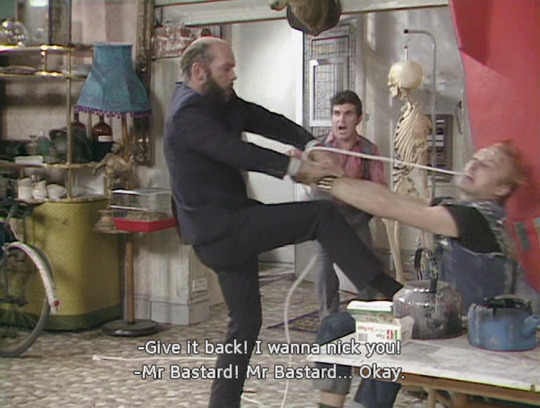
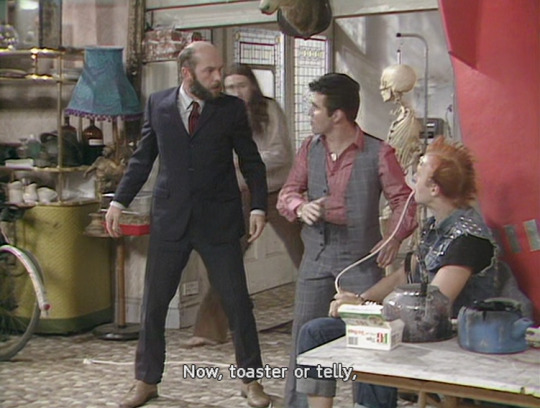
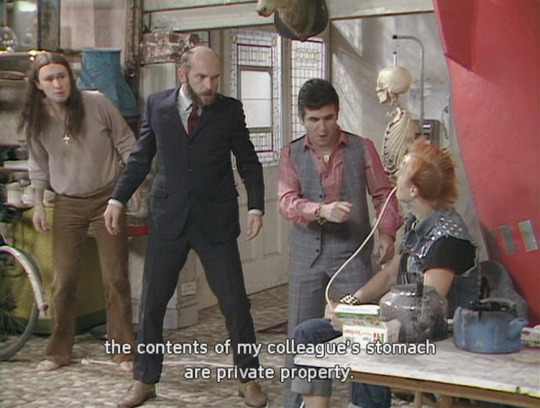
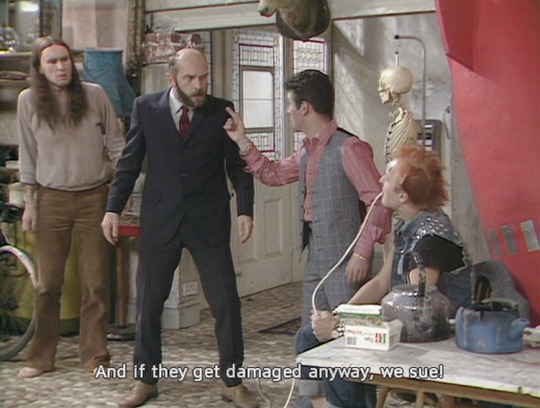
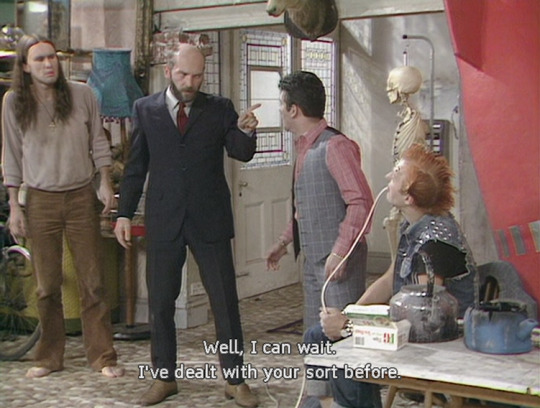
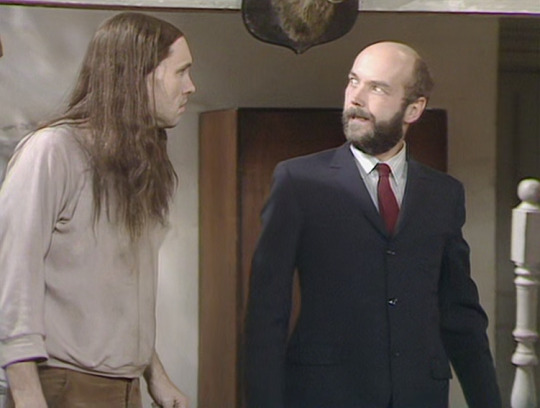
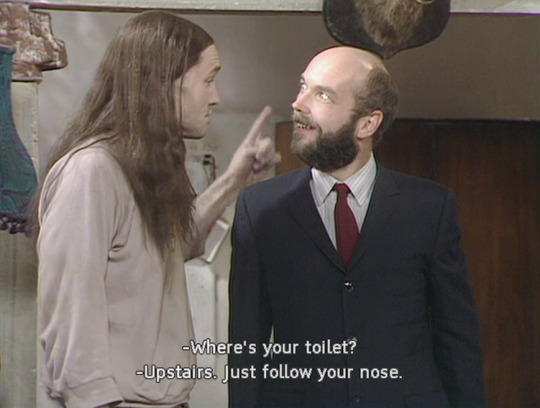
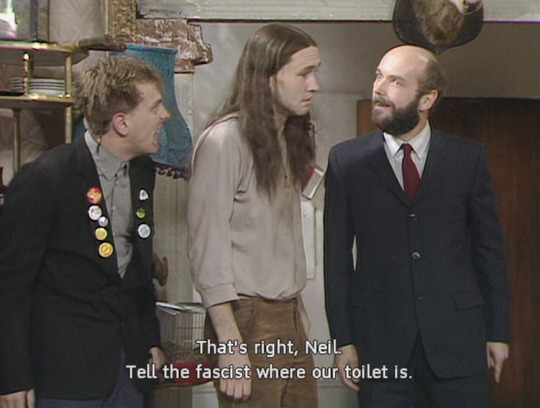
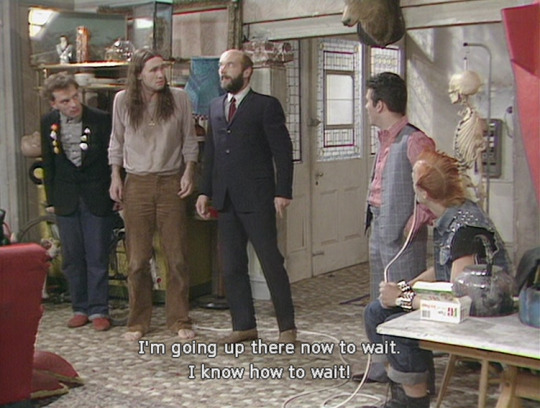
And I promise you, son, when that telly comes out the other end, you're nicked!
The Young Ones - S1E4- "Bomb"
#the young ones#bomb#television licence inspector#Right Bleeding Bastard#Mike the Cool Person#Neil Pye#Vyvyan Basterd#(P)Rick#Rick Pratt
11 notes
·
View notes